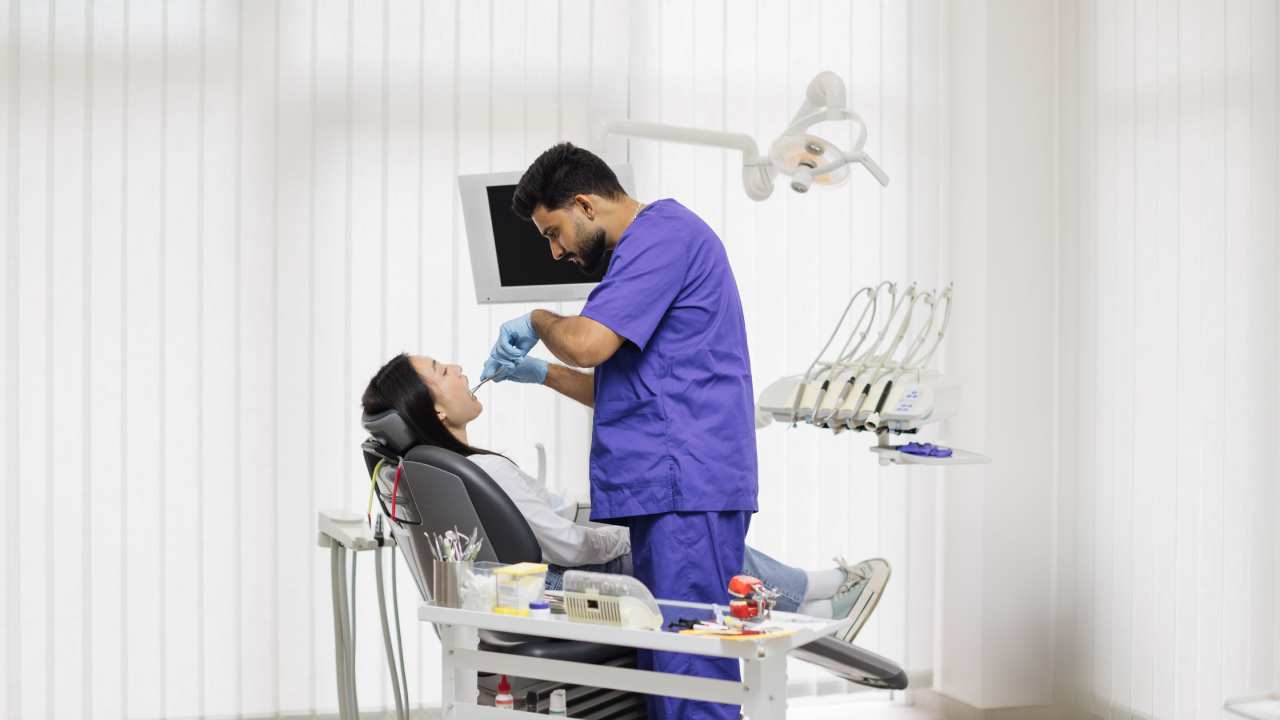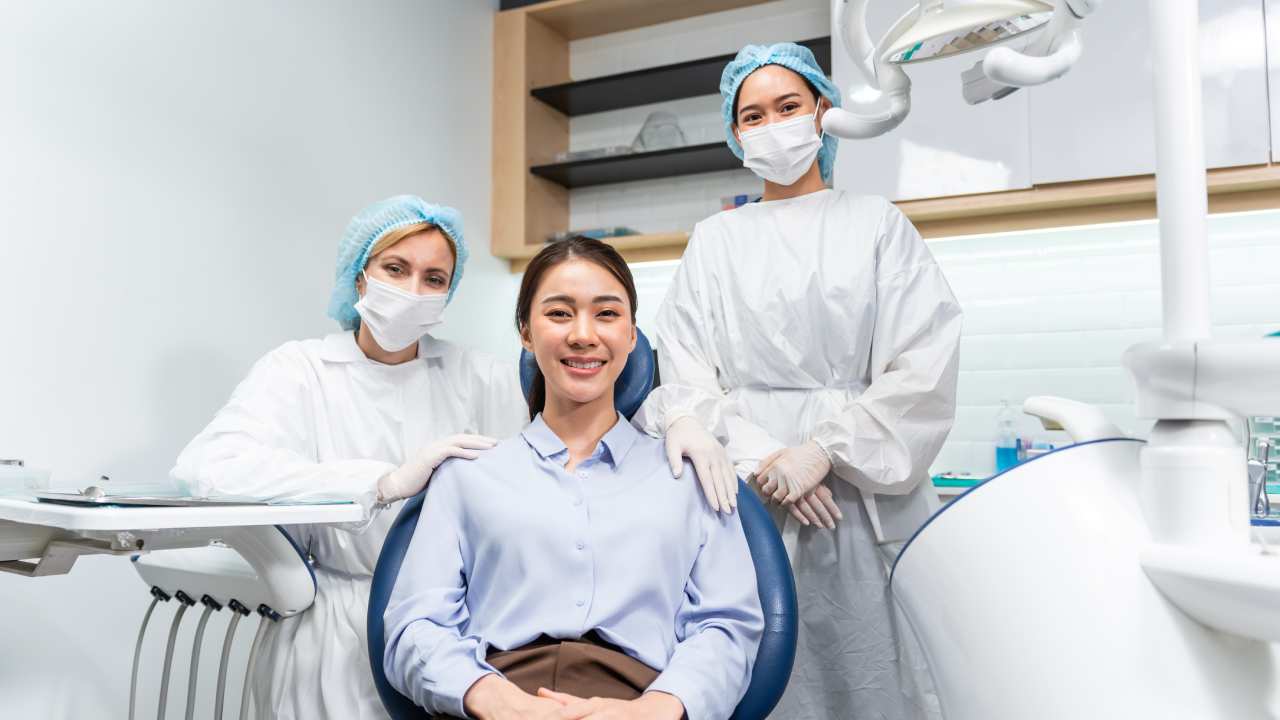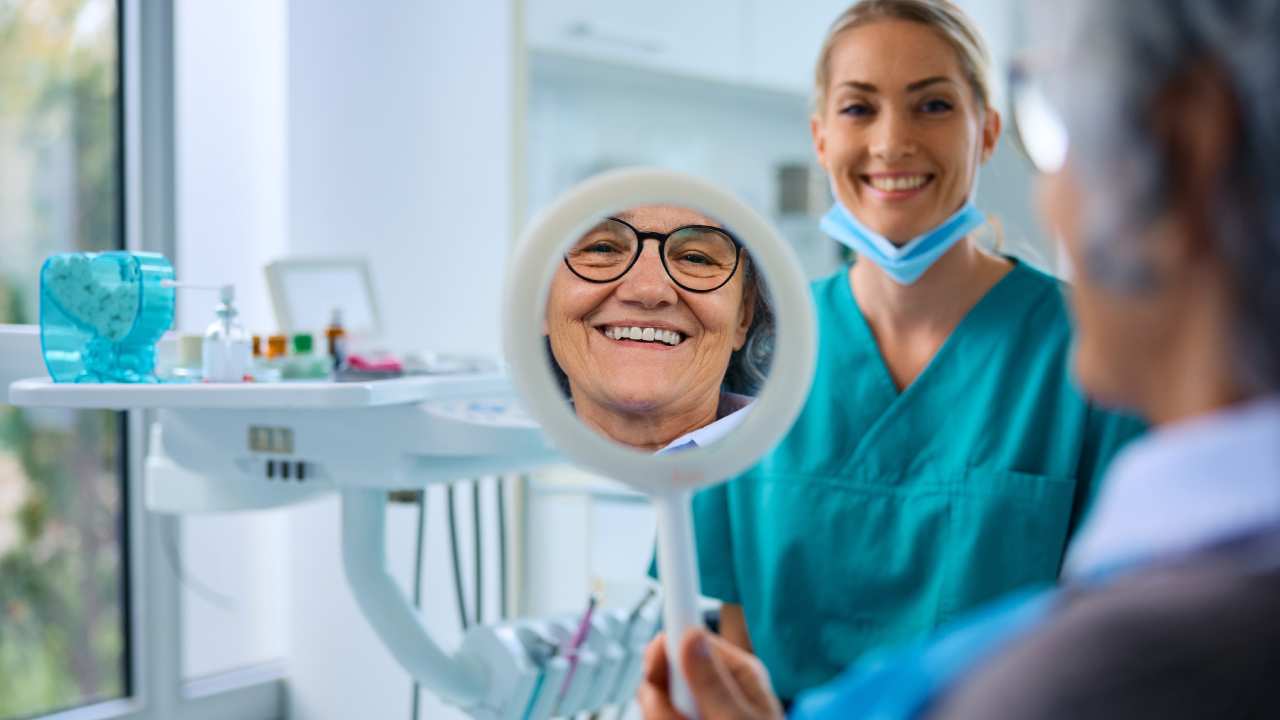Tooth extraction can sometimes feel like a daunting prospect. You may worry about discomfort, healing time, or how the procedure will impact your daily life. At Reimels Dentistry, we want you to feel supported and fully informed about every step of your dental journey. In this informational guide, you will learn all the essentials, including potential reasons for needing an extraction, the process involved, and the special care we offer to make your experience as supportive and positive as possible.
Reasons for extraction
There are several reasons why a tooth might need to be removed. In many cases, unseen decay or gradual damage necessitates extraction before more serious complications arise. Even if you are not experiencing pain, you may still have an underlying condition that affects your oral health. Let’s discuss some of the most common causes.
- Overwhelming decay. When a cavity extends too deeply or spreads into the inner layers of your tooth, the structure can become unstable. According to research, severe tooth decay is a leading reason for extraction (Goodyear Dentistry).
- Deep cracks. A crack that goes down to the root threatens the tooth’s integrity. Such damage can lead to infection if left untreated.
- Gum disease. Periodontal disease can weaken the structures that hold your teeth in place. Over time, ligaments and bone tissue degrade, sometimes making extraction the best option (News-Medical).
- Crowding. Occasionally, teeth may need to be removed to make space for orthodontic treatment, especially if your teeth are overlapping or poorly aligned.
There are also times when an impacted tooth fails to fully erupt, leading to pain and possible infection. Removing the problematic tooth can clear the way for better oral health. Although we always aim to preserve your natural teeth, there are moments when extracting them is the most beneficial step toward a healthier, more comfortable smile.
The extraction process explained
When you come to Reimels Dentistry for a tooth extraction, you can expect individualized care that focuses on your unique situation. While the exact procedure can vary depending on your needs, understanding the basics can help ease any concerns.
Simple vs. surgical extractions
A simple extraction is typically performed on a tooth that is visible above the gum line. This involves gently loosening the tooth with a specialized instrument before removing it. If the tooth is fully or partially below the gum line, or if it has broken off at the surface, a surgical tooth extraction may be needed. In a surgical extraction, your dentist or oral surgeon carefully opens the gum to gain better access and may remove the tooth in sections for a smoother process (Simply Dental Chatswood).
Comfort-focused anesthesia
Before we begin, we ensure that the area around your tooth is numb. Local anesthesia is commonly used to block pain signals. If you experience significant anxiety or require multiple procedures, sedation can be a great option to help you stay relaxed. At Reimels Dentistry, we offer multiple sedation methods. From oral sedation and nitrous oxide sedation to IV sedation dentistry, you can discuss the level of sedation that makes you the most comfortable.
Gentle removal
Once you are numb (and sedated if necessary), we will begin removing the tooth or the impacted tooth portions. We keep you informed at every step, checking in to ensure you remain at ease. By employing advanced techniques, our goal is to minimize trauma to the surrounding tissues.
Immediate post-extraction care
After your tooth is removed, your dentist will place gauze over the socket to help control bleeding and promote clot formation. You will receive thorough instructions on proper care, including how to reduce swelling, what to eat during the initial healing phase, and what to avoid (like using straws or smoking). We also schedule a follow-up appointment if needed to monitor your healing progress.
Potential complications and how to prevent them
Like any dental procedure, tooth extraction carries certain risks. However, being aware of these possibilities and taking proactive measures can help prevent complications.
- Dry socket. After you have a tooth extracted, a blood clot should form in the socket. If that clot becomes dislodged, you may experience dry socket, which leads to severe pain and delayed healing. Avoid vigorously rinsing your mouth soon after the procedure and follow your dentist’s post-extraction instructions carefully (Saddlebrook Dental).
- Infection. Despite preventive measures, infection can occur when harmful bacteria enter the extraction site. Signs include persistent swelling, increasing pain, and fever. Reach out to your dentist if you notice any such symptoms.
- Prolonged bleeding. Minor bleeding up to 24 hours after extraction is normal, but if it persists or worsens, contact Reimels Dentistry for evaluation and guidance.
- Nerve damage. Very rarely, especially during wisdom tooth extractions, the nerves that run through your jaw can be affected. This might lead to temporary or even prolonged numbness in parts of the face or mouth. Monitoring and prompt care can help manage this risk.
We maintain a sterile environment in our clinic to reduce infection risks, and we emphasize consistent follow-up. Our team also offers emergency dental care if you experience complications, ensuring that you always have swift and professional guidance.
Preventive measures to avoid extraction
While extracting a tooth is sometimes unavoidable, prevention can protect your smile for years to come. By following a comprehensive oral care routine and scheduling regular checkups at Reimels Dentistry, you can often sidestep future problems.
Daily brushing and flossing
The cornerstone of good oral hygiene is brushing twice per day and flossing daily. Plaque and tartar build up when brushing and flossing are neglected, increasing the risk of tooth decay and gum disease.
Routine professional services
- Professional teeth cleaning. Even if you are diligent about at-home oral hygiene, hardened tartar can remain in tough-to-reach areas. Professional cleanings remove this buildup and polish your teeth for a healthier smile.
- Fluoride treatment. Fluoride can strengthen enamel and help prevent cavities, making this treatment an important aspect of preventive care.
- Routine dental checkup. Regular visits let us catch potential issues before they become severe. During these checkups, our team may also conduct an oral cancer screening to ensure your overall oral health is preserved.
Through consistent preventive dentistry, you can lower your chances of needing a tooth extraction. When you invest in caring for your teeth, you help safeguard them from decay, disease, and other factors that could lead to future removal.
Alternatives to extraction when possible
At Reimels Dentistry, our primary goal is to preserve your natural teeth whenever feasible. In many situations, alternative treatments can address dental problems without extraction.
Root canal therapy
If your tooth is compromised by deep decay or infection, root canal therapy might save it. In a root canal, the infected pulp is removed from inside the tooth before the tooth is cleaned, filled, and sealed. This option can be less invasive than extraction and can often help you avoid significant post-procedural discomfort (Advanced Dental Arts).
Dental crowns
A crown is a protective cap that sits over a weakened or cracked tooth, restoring its structure and appearance. If a crack or large filling is threatening to compromise the tooth’s integrity, dental crown placement offers a solution that allows you to keep your natural tooth underneath. Crowns are crafted to blend seamlessly, improving function while maintaining aesthetics.
Gum disease treatment
When periodontal disease threatens critical support structures that hold your tooth in place, extraction is sometimes necessary. However, in many cases, a thorough gum disease treatment, such as periodontal scaling and root planing, can safeguard your tooth against future deterioration. If you need ongoing maintenance, we also offer a periodontal maintenance cleaning program to keep your gums healthy.
LANAP and regenerative therapies
In advanced gum disease, certain specialized treatments like Laser-Assisted New Attachment Procedure (LANAP) can preserve the teeth by targeting infected tissue while promoting healing (Advanced Dental Arts). Regenerative endodontics takes a similar approach for infected or necrotic pulp, aiming to encourage the natural healing processes within the tooth. Our experienced team will let you know if you are a candidate for these innovative techniques.
Recovery and aftercare
Whether you have a simple or surgical tooth extraction, proper aftercare is essential for a smooth recovery. Typically, your body begins forming a blood clot within the first 24 hours. During this time, it is important to rest, avoid strenuous activity, and limit foods that are hard to chew or abrasive.
Immediate steps for healing
- Control bleeding. Keep slight pressure on the gauze your dentist places at the extraction site. Mild oozing or bleeding is normal within the first 24 hours.
- Manage swelling and pain. Apply a cold compress to the area for 10 to 20 minutes at a time. Over-the-counter pain relievers often help manage discomfort, but always follow your dentist’s instructions.
- Stay hydrated. Drink plenty of water, but avoid using a straw and do not smoke, both of which can dislodge the clot and lead to complications like dry socket.
Expected healing timeline
Research indicates that pain usually decreases around the third day, and the clot fully stabilizes by about a week to ten days (Colgate). During this period, protective tissue known as granulation tissue forms, paving the way for new bone growth. For wisdom teeth or complicated extractions, healing may require several weeks, but we will monitor your progress through checkups and guide you every step of the way.
Follow-up visits
You will likely have a follow-up appointment or a quick check-in about two weeks after your extraction, especially if you had sutures. This visit allows us to examine the site, remove any non-dissolving stitches, and ensure there is no sign of infection. If any concerns arise at home, such as persistent bleeding, excessive swelling, or foul-smelling discharge, it is crucial to reach out so we can provide further evaluation.
Advanced technology for comfort and safety
Part of choosing the right dental practice involves knowing they prioritize your comfort and use state-of-the-art technology. At Reimels Dentistry, we invest in innovative equipment designed to streamline your experience and support positive outcomes.
- Digital xray imaging. Compared to traditional X-rays, digital scans reduce radiation exposure, save time, and create clearer images for diagnosis.
- 3d cone beam imaging. With a cone beam scan, we can map out your mouth in three dimensions, giving us precise information for intricate procedures.
- Intraoral camera examination. High-resolution images of the inside of your mouth help us explain any concerns and allow you to follow your dental treatments step by step.
By combining advanced technology with a personalized approach, we enhance accuracy, reduce procedure times, and ensure you have a clear understanding of your oral health.
Why choose Reimels Dentistry
You deserve a dental team that is dedicated not only to resolving immediate issues but also to guiding you toward long-term well-being. Here is what sets Reimels Dentistry apart.
Comprehensive services under one roof
Although tooth extraction is sometimes unavoidable, it is only one facet of our extensive range of services. From preventive visits to cosmetic smile makeover procedures, we strive to address every aspect of your oral health in a welcoming environment. When you or a loved one chooses Reimels Dentistry, you have access to:
- Preventive care. Our routine dental checkup, professional teeth cleaning, and pediatric dental care services form the cornerstone of a healthy mouth for patients of all ages.
- Restorative solutions. If any tooth damage does occur, we offer broken tooth repair, dental infection treatment, gum disease treatment, dental crown placement, porcelain crown service, dental bridge placement, and full denture fabrication among many other restorative options.
- Cosmetic enhancements. Improving the appearance of your smile can lift your confidence. Our porcelain veneer placement and advanced whitening options are tailored to your goals.
Patient-centered focus
Our unwavering commitment is to provide empathetic, personalized care. We understand that dental procedures can sometimes stir up nerves, so we create a safe, supportive space where you feel heard. Our approach is evidence-based, so we can offer the best possible solutions to every concern. If you have anxiety around dental visits, we also offer medication management for dental anxiety and comprehensive sedation dentistry service.
Transparent, friendly care
We believe in honest communication. When you come in for a consultation, we take the time to explain your oral health status, guide you through potential procedures, and outline the costs. For financial convenience, we are an insurance friendly dental practice and provide a dental membership plan for those without insurance. Our goal is to make high-quality dental work accessible and straightforward for you.
Ongoing education and professional authority
Our team stays current with advanced training and ongoing education. This ensures that you receive top-tier diagnostic expertise, comfort-focused techniques, and cutting-edge treatments. From mastering the newest restorative materials to adapting modern sedation practices, we strive to meet the highest industry standards.
Additional considerations
Sometimes a tooth extraction can prompt further procedures to preserve the function and appearance of your mouth. For example, a missing tooth may lead to shifting of adjacent teeth, affecting your bite alignment and overall oral health. At Reimels Dentistry, we might recommend:
- Bone grafting ridge preservation if significant bone loss occurs or is anticipated.
- Restorative replacements like implants or dentures. We can guide you toward the best option, whether that is a partial denture service, snap in denture service, or a dental implant consultation.
- Follow-up treatments such as an orthodontic consultation or invisalign service if we need to assist with the alignment of your remaining teeth.
Our goal is to help rebuild and preserve healthy oral structures so you can eat, speak, and smile with confidence.
Frequently asked questions
Is tooth extraction painful?
Because we use local anesthesia, you should not feel pain while the tooth is being removed. Many patients report only mild pressure. If you have anxiety or a low pain threshold, talk to us about sedation options, such as nitrous oxide sedation or oral sedation.
How long does it take to heal?
Most people find the initial swelling and discomfort peak within the first 24 to 48 hours. Pain generally subsides by the third day, but a full return to normal activities may take around one to two weeks, depending on the complexity of the extraction. Wisdom tooth removal or certain surgical extractions can extend the recovery period to several weeks.
Should I get sedation for a tooth extraction?
Sedation is beneficial if you have high dental anxiety, a strong gag reflex, or if the extraction is complex. We offer multiple levels of sedation to match your comfort level. After a thorough evaluation, we can recommend the best option for you.
What if I have a fear of the dentist?
Fear or anxiety about dental care is common. At Reimels Dentistry, we offer medication management for dental anxiety and sedation solutions. Our team is trained to create a welcoming atmosphere, so we will work with you patiently, taking breaks as needed and explaining each step of the process.
What if I experience complications after the procedure?
If you notice prolonged bleeding, severe swelling, persistent pain, or any unusual discharge and odor, contact us promptly. We provide emergency dental care to address these issues quickly, ensuring you receive timely treatment and prevent further complications.
Tooth extraction can be a source of uncertainty, but you do not have to face it alone. At Reimels Dentistry, we guide you through the process with empathy and expertise. By focusing on personalized treatment planning, advanced technology, and a supportive environment, we help you and your loved ones maintain a healthy smile for years to come. If you have any questions or concerns, we invite you to schedule an appointment, so we can collaborate on the best approach for your oral health needs. From preventive services to restorative and cosmetic solutions, our team is here to foster your comfort, confidence, and long-term well-being.







